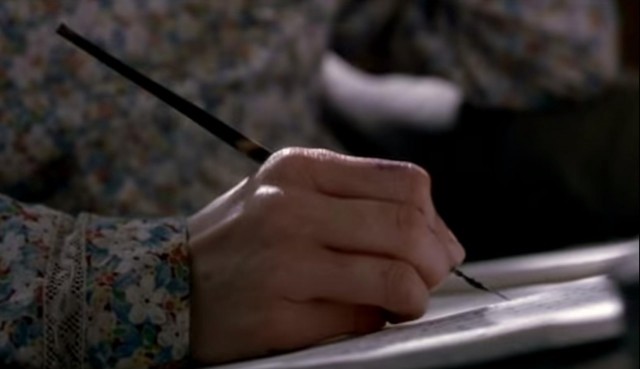Money for Poetry
by Camille Guillot

The first time someone gave me money for my poetry, I hadn’t asked for it. I had sent a few pieces to an undergraduate literary magazine, and, months later, they told me I’d won second place in a contest I hadn’t known existed. I carried the check around like a certificate of validation. I didn’t want to give it to the bank. When I finally did deposit it, I spent the first fruits of my earnings on a restaurant dinner; it was as if by eating the money I’d won, I could bring the victory back inside myself.
When I had realized (years before and to my great dismay) that I liked writing poetry, it felt nothing like the proverbial dream that people are urged to follow. I’d seen the poetry section at Barnes & Noble, after all: two shelves wide, unpopulated besides me, its offerings including I Could Pee on This: and Other Poems by Cats. When I Googled contemporary poets I really liked, they were usually professors, or supported by kind spouses, or writing in cubicles between bouts of paperwork. I knew I would not be able to support myself doing what I liked best. So far I’ve been right about that: If I wanted to make a living following my dreams, I should have picked a better dream. I have not gotten any book deals with six-figure advances; I don’t have a wealthy and tasteful patron.
But after I went through the messy, embarrassing process of figuring out how to get published — imagine studiedly eccentric cover letters, sometimes addressed to the wrong journal, until I learned better — I do make a little on my poetry.
It’s not much: to be discreet, let’s say that after an acceptance, I might be able to buy half a week’s groceries, or groceries for a month. I probably don’t make minimum wage for the time I spend choosing metaphors and breaking lines. Still, every we are pleased to include your poem nestled among other magazine’s rejections in my inbox feels like free money. (Maybe that’s the upside to being dumb enough to write poetry at all and old enough not to be hope-blinded: every small achievement seems delightfully accidental.)
Fortunately, writing and submitting work doesn’t require much of a financial investment. As great as Duotrope is — my new subscription to it is absolutely my favorite Christmas gift of 2014 — you don’t need it. The website for Poets and Writers Magazine has a nifty little journal-search tool; you can filter by genre, format, and — yes — payment. Some magazines have submission fees, but you can avoid them, or come up with rules to limit how much you spend, like other gamblers do. As for time investments: though the poetry takes a while to make, the submissions are easy. Brief, polite, uncutesy cover letters work better than the over-unique ones I used to send out, and they’re much quicker to write. Attach a cleanly formatted file of poetry, and you’re good to go.
But my favorite thing about getting paid for my poetry isn’t the payment itself. (Although when you’re just starting out your career, a little extra money is nothing to sneeze at.) Nor is it the joy of seeing my work out in the world, or the satisfaction of a job well done — somehow, I’ve managed to find a motive even pettier than cash: I like knowing that a journal had to give something up to get my work, that they were inconvenienced — that they’re not just publishing me as a favor.
Camille Guillot is from New Orleans. She likes tuna, stockings, and Frank O’Hara.
Support The Billfold
The Billfold continues to exist thanks to support from our readers. Help us continue to do our work by making a monthly pledge on Patreon or a one-time-only contribution through PayPal.
Comments